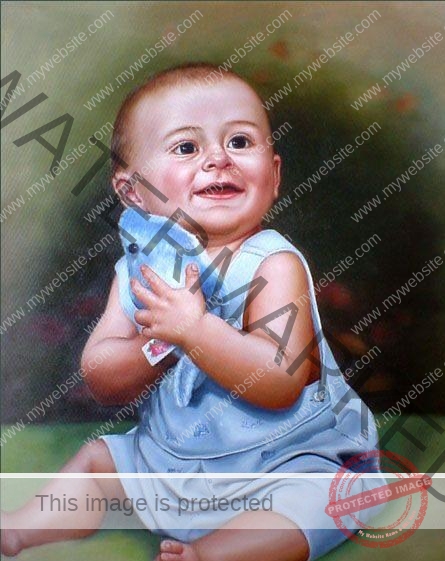
Before reading what is here below, close your eyes and imagine for a moment meeting this baby in person.
What would be your first body reaction?
I don’t know any statistics on this subject, however, based on my personal experience and what I observe in my daily life, I believe I can safely say that many of us feel something when we are in front of a baby or a very young child.
When facing a baby, for most people, the first physical reaction is the appearance of a nascent or supported smile. The second, if there is one, is very often a physical contact, a caress, a cuddle or a hug.
What is also interesting to observe, is that these reactions seem to be indifferent, and not influenced by the child’s sex, as if the child were asexual.
So the legitimate question is: what makes us feel the need to express such empathy?
Empathy that we feel even if the little child or baby is unknown or foreign to us, whereas we often feel none towards a foreign person…
Many scientific studies on the subject seem to come to the conclusion that this demonstration of empathy is a response to a strategy, of course unconscious, of the very young child. A strategy of calling for protection and benevolence. It goes without saying that this makes sense! Without protection, nor benevolence from his environment, the very young being could not survive. This strategy is like a mechanism triggered for his well-being and his individual survival. And we also understand from then on, that this mechanism serves, by the same token, the survival of the species.
This makes sense, but what interests me the most is to think about why, in our great majority, we have this propensity to succumb to this call.
I like to fight against these inner urges by suppressing my smile or any expression of kindness towards a child who looks at me, even if it is with insistence. I play at observing them, deciphering them, feeling them.
What interests me is to take a step back from this primitive and unconscious emotional reaction. Don’t I have another motivation, a more real one, while being just as unconscious, which pushes me to smile or to take this baby in my arms? Indeed, there is no doubt, in our time and in our developed societies, that this little being does not have its existence threatened when I meet it in the elevator, in the queue of the supermarket or at the home of friends.
Since this little being is not in danger at the moment we meet it, wouldn’t there be other emotions at work in this instinctive response of smiling?
Awareness of our primitive foibles is not easy, we often miss them, carried away by emotions buried deep in our humanity as human beings.
Do you show a pleasant face to let the child know that he or she has nothing to fear from you, that you know he or she is vulnerable, and that you will be there for him or her in times of need?
Do you smile at the child because you know he or she is harmless and won’t be able to talk back and make you feel uncomfortable, or retaliate in a mean way?
Do you hug him because you want to give him a hug, or because you enjoy being in contact with his skin or feeling the warmth of his body?
When you hug him, do you do it by paying attention to how his body reacts, or rather how you manage your own feelings or emotions?
Have fun answering these 4 questions the next time you find yourself in such a situation.
This gymnastics of the mind that consists in bringing out our unconscious feelings brings more clarity on our behaviors, helps us to become honest with ourselves.
Probably part of what Moshé Feldenkrais mentioned as “…regaining our dignity as human beings…”


